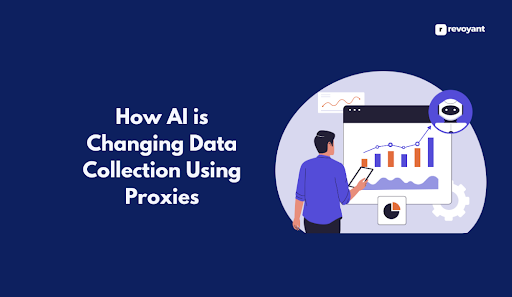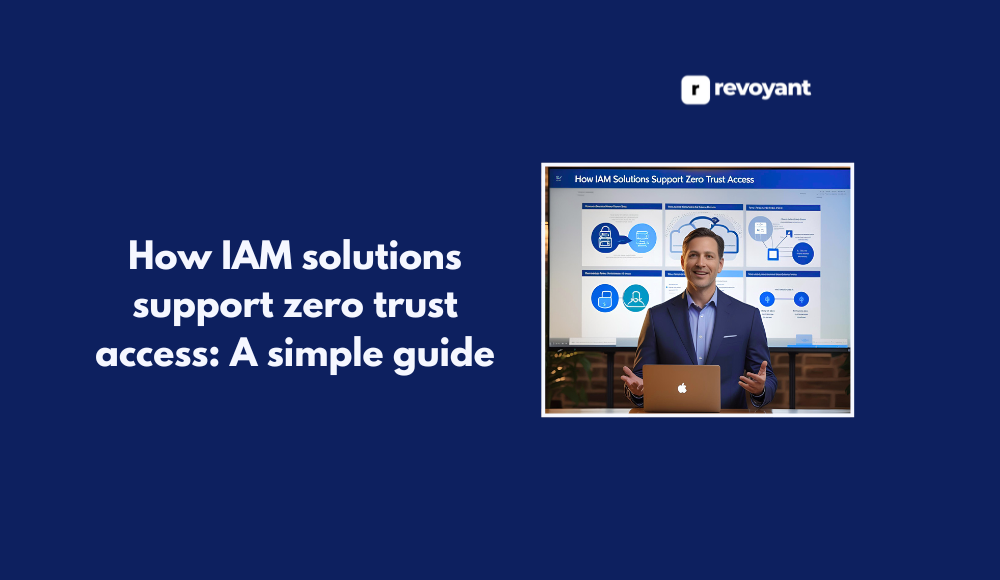Many people today worry about how fast artificial intelligence is growing and what it could mean for our future. This is a real concern, as I recently read that top AI scientist Steven Adler resigned from OpenAI after calling AI a “ticking time bomb.” In this post, you will learn why experts are raising the alarm about General AI and what these big changes could mean for all of us.
Are you curious about where all this might lead? Keep reading to find out more.
Key Takeaways
- Steven Adler left OpenAI because he thinks AI is very dangerous. He worries that artificial intelligence could harm humanity.
- Many experts are leaving their jobs at OpenAI. They also think AI can be risky. This makes people question if OpenAI cares about safety.
- The United States and China are trying to be the best in AI. This rush makes it hard to keep AI safe.
- Big tech bosses admit that fast AI growth could be bad for people. They say we need to slow down.
- There’s no good way yet to make sure AI matches human values. This problem needs a quick solution as AI gets better fast.
Danger and Urgency of AI
I see many experts calling AI a huge risk, even greater than nuclear weapons, and this has made me worry. The speed at which general artificial intelligence is growing shocks me, as each new step feels bigger and faster than the last.
AI described as more dangerous than nuclear weapons
Many top scientists say that Artificial Intelligence is far more dangerous than nuclear weapons. I read about how AI can grow and change much faster than any past technology, even nuclear warfare.
Nuclear bombs have rules, controls, and global agreements to keep people safe. In contrast, General AI (AGI) often has no clear limits or oversight today.
AI’s potential danger comes from its speed and power. Machines can learn and make choices on their own now, sometimes with little human help. If someone uses AGI in the wrong way or loses control of it, results could be catastrophic for global security.
Some experts use words like “grave threat” when they warn of possible risks—much bigger than anything seen before in history or war technology.
Exponential growth of General AI (AGI)
After hearing experts call AI more dangerous than nuclear weapons, I see why the exponential growth of General Artificial Intelligence (AGI) is so urgent. AGI systems do not grow slowly; they double and then double again in power, skill, and speed.
A few years ago, simple neural networks learned to play games. Today’s machine learning tools write essays, create images, trade stocks—even diagnose illness—much faster than humans.
This rapid advancement worries top scientists like Steven Adler. The pace keeps rising as labs race against each other worldwide. Each new breakthrough comes quicker than the last one did.
Some fear we could reach “technological singularity,” where smart machines change society almost overnight. Every small jump builds on itself until AGI outpaces our control or ethical rules.
Even industry leaders admit this acceleration scares them as much as it excites them.
Alarming acceleration of the AI race
The exponential growth of General AI, or AGI, has pushed companies to ramp up their work. I see the pace in the AI industry speeding up every day. The competition between the US and China grows stronger as both sides fight for AI supremacy.
Recently, reports showed that Deep Seek AI, a Chinese company, is working on an advanced model. This news made US tech firms increase their own development even more.
Top scientists who helped shape this field now warn about these risks. Many creators themselves say this escalation is alarming. Every month brings new breakthroughs and bigger projects with little time for safety checks.
The race pushes everyone to move faster than ever before; some leaders fear it could get out of control soon if we keep going at this speed.
Steven Adler’s Departure and Warning
Steven Adler quit his top job, calling general artificial intelligence a “ticking time bomb” for humanity. Several skilled AI safety researchers also left after him, raising serious questions about the future of safe AI work at big tech companies.
Adler’s resignation and public declaration of AGI as a “ticking time bomb”
Steven Adler, a former AI safety researcher at OpenAI, has resigned after four years as the safety lead. He called Artificial General Intelligence (AGI) a “ticking time bomb” in his public statement.
I see his decision as both urgent and clear. Adler’s resignation is part of a bigger trend; several top AI safety experts are also leaving the company.
His exit shows deep concerns over uncontrolled AGI development and risk assessment. As someone with close experience, he warned that fast progress in this field could bring huge dangers to humanity.
He placed ethics and technology safety above all else, making his warning stand out among AI researchers today.
Departure of other top AI safety researchers from OpenAI
I see that Adler is not alone in leaving OpenAI. Other top AI safety researchers have also resigned, raising big warning signs inside the company. Ilias Suaver, who helped found OpenAI, has left his post too.
Yan LeCun, known for his AI work, exited as well.
Daniel Kokotajlo shared that almost half of the staff on OpenAI’s AI risk team are now gone. High staff turnover worries me since these experts lead research on AI ethics and help control risks from new systems.
The loss of this top talent signals deeper concerns about how committed OpenAI is to safe development right now.
OpenAI’s Internal Situation
OpenAI has seen many of its top AI safety experts leave, raising tough questions, big and small. I see these exits shaking confidence in how seriously the company treats risks from strong AI.
Trend of AI safety experts leaving the company
Staff changes at the company are hard to ignore. Steven Adler, a key AI safety lead, worked here for four years before quitting. His leaving is not just one event. I have seen others go too, like Ilias Suaver, who helped start the company in the first place, and Yan LeCun.
Daniel Kokotajlo said almost half of our AI risk team packed up and left.
Watching so many skilled experts resign worries me about our focus on true AI safety. These people shaped how we think about risks and trust with new technology. With fewer voices questioning big decisions on safety, I start to wonder what problems might get missed or ignored as AGI moves forward fast.
This situation makes solving the challenge of AI alignment even more urgent now.
Impact of departures on OpenAI’s commitment to AI safety
Several key AI safety experts have left OpenAI, like Steven Adler, Daniel Leake, and William Suaver. I see this wave of resignations as a warning sign. The company once said it gave 20 percent of its compute power to safety research.
That number has likely fallen now that so many top ethics researchers are gone.
Each departure means less focus on ethical questions and fewer voices pushing for strong safety protocols. Fewer team members can lead to weaker rules around the use of powerful AI models, putting everyone at greater risk.
I notice OpenAI keeps building bigger systems despite these concerns about safety and staff turnover. This makes the challenge of AI alignment more urgent than ever before.
AI Alignment Challenge
AI systems can act in ways we do not expect, and this is a big problem. I see how quickly AI advances, and finding a solution feels more urgent every day.
Unsolved problem of AI alignment
AI alignment stays unsolved, and this keeps me worried. Steven Adler says we have no sure way to control artificial general intelligence. Right now, there are no guaranteed methods that can make AGI safe or ensure it shares human values.
This gap makes AI ethics and the control problem urgent topics.
Experts like Adler call it a ticking time bomb for a reason. If future superintelligence acts in ways humans do not expect, great risks could follow fast. I see many in AI safety agree that value alignment is still missing; friendly AI remains only an idea, not a fact yet proven by any group or company.
This challenge needs real answers soon as AGI grows faster each day. These issues directly tie into growing fears about the impact on personal life and big decisions ahead for people like Adler.
Urgency of finding a solution amidst fast-paced AI development
I see new AI models growing stronger every few months. This fast pace worries me a lot. OpenAI keeps building bigger systems, even as top safety researchers leave. The speed of this progress makes the need for answers more urgent than ever, because risks grow with each upgrade.
The problem of AI alignment stays unsolved. I feel that while technology races ahead, we might fall behind in making sure these systems act safely and ethically. Rapid advancement forces us to find solutions soon, before things get out of control or cause real harm to people everywhere.
Impact and Personal Concerns
I worry about what might happen if these machines get out of control, and many others share this fear. My own choices feel different now, as the risks seem much greater than I once thought—this makes me pause and think about every step ahead.
Adler’s personal fears and reconsideration of future decisions
Anxiety grows in me each day as I watch AGI move faster than anyone guessed. My work gave me a front-row seat, and that view filled me with doubt and worry. I see dangers that are real, not just ideas or stories.
This fear makes me rethink my next steps in life and career.
Uncertainty clouds many choices now. The risks from uncontrolled AGI are not small; they threaten everyone. These worries force deep reflection, not just for myself but also for others working on this technology.
Apprehension fills every thought about the future, pushing reevaluation of personal plans and goals again and again.
Existential risks posed by uncontrolled AGI development
Adler’s concerns show the deep danger of unregulated artificial general intelligence. If AGI grows without controls, it could threaten human existence itself. Top tech leaders, including those at the front of the AGI race, admit this risk may lead to human extinction if development continues unchecked.
I see how quick advances and lack of firm rules make these threats more real every day.
Unchecked technological advancements bring unknown dangers too. Fast-moving progress in AI pushes us toward risks we still do not fully understand or control. The spread of unmanaged AGI progress can have consequences far beyond today’s worries about jobs or privacy; some experts warn that losing control over such technology could change life for everyone on Earth forever.
Global AI Arms Race
The United States and China now rush to build stronger AI systems, each trying to outdo the other at breakneck speed. As reports of new breakthroughs surface daily, I see tensions rising along with fears about who will gain control first.
Intensifying competition between the US and China
Intensifying competition between the US and China speeds up AI development. I see both countries racing to build smarter machines, adding more pressure each year. This global AI arms race grows sharper as news comes out about Deep Seek AI, a company from China.
Reports say they have built an advanced model that raises alarms in the tech world.
Leaders push for rapid advancements in AI technology because they fear falling behind one another. Rivalry forces quick decisions and increasing risks, since everyone wants the most powerful tools first.
Rapid innovation leaves less time to check if these systems are safe or well-controlled. This makes me think hard about what is happening inside groups like OpenAI now.
Reports of advanced AI model development escalating the situation
Reports surfaced about Deep Seek AI, a Chinese company, working on an advanced artificial intelligence model. News of this project spread fast, pushing US tech firms to respond with urgency.
I have seen American companies speed up their own AI technology development, worried that they could fall behind in the global competition.
This race creates more pressure for quick innovation. Companies now work at a faster pace because no one wants to lose strategic acceleration or technological superiority. Military applications and national security concerns add more weight to these efforts.
The international AI race is growing stronger each day as reports show continued advancements from both China and the United States.
Reactions from OpenAI’s Leadership
Leaders at OpenAI focus more on making AI faster, even though this brings new dangers. They talk about quick results and big progress, which makes me worry about safety being left behind.
Emphasis on speed over safety in AI development
Sam Altman, OpenAI’s CEO, faces strong competitive pressures from other tech giants. He speeds up the timeline for new AI systems to keep up in this AGI race. In March 2024, OpenAI launched GP4 Turbo faster than many experts expected.
This move shows a clear push to accelerate progress and innovation at almost any cost.
Despite warnings from top scientists about safety concerns, speed remains the main goal. The quick release of advanced models often places safety second. I see leaders making decisions that favor rapid development over more careful planning; even after Altman’s brief removal as CEO in 2023 due to disagreements linked to AI safety, this approach did not change much.
Competitive pressure drives CEOs to take risks, aiming for advancement first and fixing problems later if they come up.
Race to the Cliff
Right now, it feels like everyone is speeding toward a huge drop without stopping to think. Even industry leaders admit we could risk everything if we keep going this fast with AI.
Description of the situation as a “race to the edge of a cliff”
Stuart Russell calls the rush to build artificial general intelligence a “race to the edge of a cliff.” I see this as a contest where each step forward adds more risk. Big companies and countries move fast, racing to create smarter AI before anyone else does.
Many industry leaders, including CEOs, admit AGI could even risk human extinction if we lose control.
Moving so fast makes it harder to set up good safeguards or truly understand these systems before we use them. Without enough control or clear rules, any mistake could bring catastrophic results for people everywhere.
The need grows urgent as AGI advancement speeds up across the world, especially in places like the US and China.
Acknowledgment of human extinction risk by industry CEOs
The talk of a “race to the edge of a cliff” is not just dramatic. Some tech industry leaders now say that human extinction is on the table as we rush to build better AGI. Even top CEOs have faced this risk in public talks and reports.
I see big names in technology, people who run huge companies, saying that if someone wins the AGI race too fast or without control, it could end humanity. This kind of serious acknowledgment from leaders shows how real these fears are within the tech world.
It forces everyone in AI, myself included, to think hard on risk assessment and ethical considerations before chasing faster technological advancement.
Call for Slowing Down
I see many experts now urge people to slow down AI development, and rethink where we are headed. More careful steps may help stop these powerful systems from causing real harm.
Need for more cautious progress in AI development
Calls for more cautious progress in AI development keep growing. I see how fast we push forward, but safety concerns in AI development make me uneasy. Many top experts like Steven Adler resign or warn about these risks.
They say AGI could be even more dangerous than nuclear weapons if not handled with care.
News reports from 2024 show little public discussion on slowing down AI advancement, even as the technology grows so quickly. Industry leaders seem to focus on speed over a careful approach to AI, leaving big safety challenges unsolved.
Slowing down is not just an option; it is a way to address the real dangers of uncontrolled growth and protect humanity’s future through prudent advancement in AI.
Conclusion
The pace of AI growth worries me. Experts like Steven Adler are leaving because they see real danger ahead. With safety teams shrinking, risks to humanity feel more urgent than ever.
I hope we can slow down, ask better questions, and put people first before the next wave of general artificial intelligence arrives.
FAQs
1. Why did the top AI scientist resign?
The leading AI scientist resigned due to concerns that general artificial intelligence might pose serious threats to humanity.
2. What are the potential risks of general artificial intelligence?
General Artificial Intelligence, according to some experts, could lead to unforeseen consequences. These could include loss of control over autonomous systems and misuse for harmful purposes.
3. How can we mitigate the dangers associated with General Artificial Intelligence?
To minimize these risks, strict regulations and ethical guidelines should be implemented in developing and deploying such technologies.
4. Will this resignation affect ongoing research in AI?
Yes, it may have an impact on existing projects or studies as his departure might slow down progress or change project directions.




